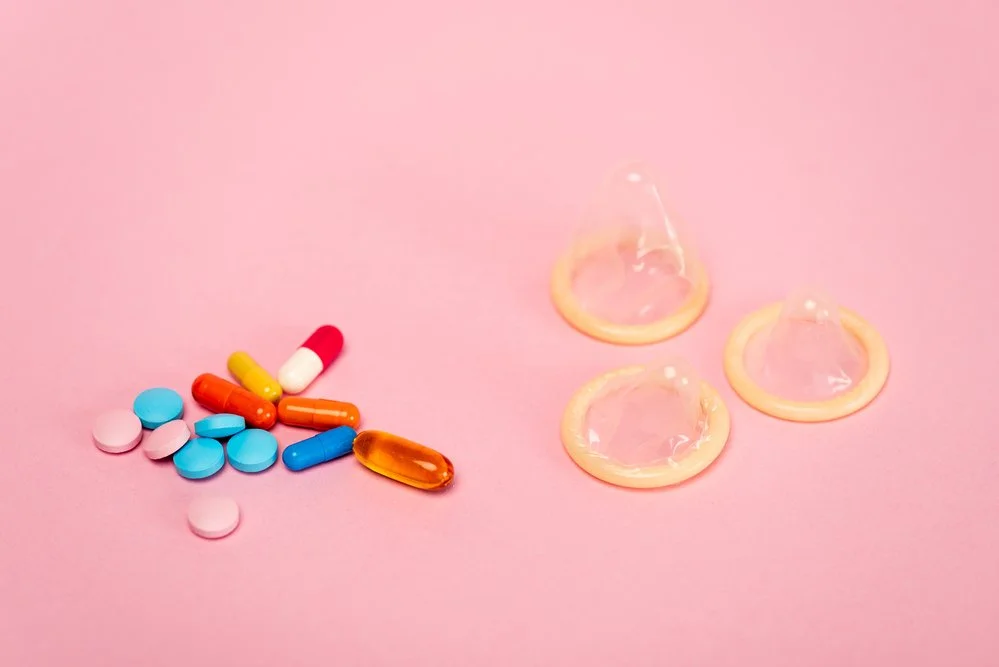Safe Sex 101: Protecting Your Sexual Health and Reducing Risks
Sexuality plays a crucial role in our lives, and it's important to prioritize both pleasure and safety when it comes to sexual experiences. In this friendly blog post, we'll dive into the basics of safe sex and delve into why it's vital to take care of your sexual health while minimizing any potential risks that come with being sexually active.
Understanding Safe Sex:
Safe sex is a great way to stay on top of your sexual health! It means taking precautions to protect yourself and your partner from sexually transmitted infections (STIs) and pregnancy. You can still have an amazing and satisfying sex life while being mindful of your well-being.
Use of Barrier Methods:
Condoms: Condoms are one of the most effective and accessible methods for preventing STIs and unintended pregnancies. They act as a barrier that prevents the exchange of bodily fluids, reducing the risk of infection or conception. It's important to use condoms consistently and correctly for maximum protection.
Dental Dams:
Dental dams are thin, flexible sheets used as barriers during oral sex to reduce the risk of STIs. They can be particularly effective when engaging in oral activities with a new or non-monogamous partner.
Regular Testing:
Regular testing for STIs is a crucial component of safe sex, especially if you have multiple sexual partners. Testing can detect infections early and facilitate prompt treatment, reducing the risk of transmission to others.
Vaccination:
Some STIs, like human papillomavirus (HPV) and hepatitis B, can be prevented through vaccination. Consult with a healthcare provider to discuss which vaccines are suitable for you based on your age, gender, and sexual activity.
Communication:
Open and honest communication with your sexual partner(s) is key to practicing safe sex. Discuss your sexual health, boundaries, and preferences with your partner(s) to ensure that everyone is on the same page and comfortable with the choices being made.
Consent:
Consent is a fundamental aspect of safe sex. It means that all sexual activities should be based on mutual agreement and a clear, enthusiastic "yes" from all parties involved. Always ensure that your partner(s) are willing participants in any sexual activity.
Mutual Monogamy:
Engaging in sexual activity within a mutually monogamous relationship (where both partners only have sex with each other) can reduce the risk of STIs. However, it's important to maintain open communication and trust within the relationship to ensure that both partners are adhering to this agreement.
Education and Awareness:
Educating yourself about sexual health, STIs, and pregnancy prevention is a vital part of practicing safe sex. Knowledge empowers you to make informed decisions about your sexual health and to protect yourself and your partners effectively.
Safe Sex and Non-Monogamous Relationships:
For individuals in consensual non-monogamous relationships, safe sex practices are especially crucial. Regular testing, open communication, and condom use are essential to protect both your primary partner(s) and any additional sexual partners from the risks of STIs.
Emergency Contraception:
If a contraceptive method fails or a sexual encounter is unprotected, emergency contraception is available to reduce the risk of unintended pregnancy. These methods are most effective when used as soon as possible after unprotected sex.
PrEP and PEP:
Pre-Exposure Prophylaxis (PrEP) and Post-Exposure Prophylaxis (PEP) are preventive medications for HIV. PrEP is taken regularly by individuals at high risk of HIV, while PEP is taken within 72 hours of potential HIV exposure, such as unprotected sex. Consult with a healthcare provider to determine if these medications are suitable for you.
Taking Control of Your Sexual Health:
Safe sex is not only about reducing risks; it's also about taking control of your sexual health and well-being. By practicing safe sex, you can:
Protect Your Physical Health:
Safe sex helps prevent STIs, which can have serious consequences for your health if left untreated. By using barrier methods and getting regular check-ups, you can maintain a healthier body.
Promote Emotional Well-Being:
Safe sex fosters a sense of security and trust in your sexual relationships, leading to emotional well-being. When you know that you and your partner(s) are taking precautions, it reduces anxiety and stress.
Avoid Unintended Pregnancies:
Contraceptive methods, such as condoms or birth control, prevent unwanted pregnancies, giving you control over your reproductive choices.
Maintain Healthy Relationships:
Open communication about safe sex promotes trust and respect in your sexual relationships. It allows you and your partner(s) to make informed decisions about your sexual activities.
In Conclusion:
Safe sex is super important for having a healthy and happy sex life! It's all about using things like condoms, getting regular check-ups, and being open with your partner(s) about what you both want. By doing these things, you'll not only be protecting yourself from STIs, but you'll also be in control and able to have fun and fulfilling sex. So let's make safe sex a priority and enjoy all the awesome benefits it brings!


